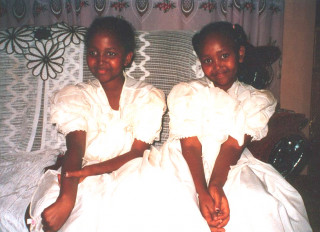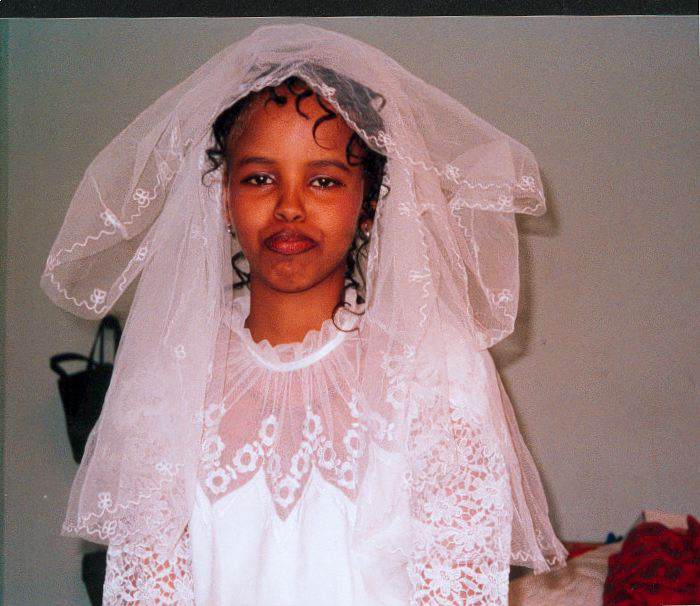The Day I Will Never Forget
England | 2002 | 92 minutes | Color | 35mm/DVD | Order No. 03808
SYNOPSIS
Demystifying the African tradition of female circumcision, Longinotto presents Nurse Fardhosa, a woman who is single-handedly reversing the ritual of female circumcision one village at a time by educating communities about its lasting emotional and physical scars. Also profiled are an inspiring group of runaway girls who are seeking a court injunction to stop their parents from forcing them to go through with the practice. Through their words the full implications of breaking with tradition are made clear, as is the incredible courage of the women and girls who risk social ostracism by taking a stand against the practice.
PRESS
"Longinotto demystifies the practice of female genital mutilation through engrossing stories of Kenyan women...Gripping, devastating, but ultimately hopeful."
"...immensely powerful... Longinotto makes intimate connections to most of her subjects."
“…Intimate and powerful…With great sensitivity [Longinotto] delivers the delicate substance of the custom…”
"Longinotto is known for her insightful, compassionate studies of women's lives, and the pull between tradition and change. In this new film, she achieves a difficult task, namely to make the complexity of the issues comprehensible, even when the practice itself may seem just the reverse."
SCREENING HIGHLIGHTS AND AWARDS
- IDFA, International Documentary Film Festival, Amsterdam - Amnesty International DOEN Award
- Hot Docs Documentary Film Festival - Best Documentary UK Spotlight
- Barcelona Human Rights International Film Festival - Special Mention
- Hong Kong International Film Festival - Humanitarian Award for Outstanding Documentary
- Valladolid International Film Festival - Time of History Jury Awards Second Prize
- Britspotting, British Independent Film Festival, Berlin - Best Documentary
- Festival International de Films de Femmes de Creteil, Best Documentary
- Viewpoint Documentary Film Festival, Best Film
- Dakar Film Festival, Senegal, Best Documentary
- WIN Award for Best Documentary Film
- Tursak Film Festival, Istanbul, Best International Documentary
- Torino Women's Film Festival, Best Documentary, 2nd Prize
- London Film Festival
- San Francisco International Film Festival
- Sundance Film Festival
- New Directors New Films
- Adelaide International Film Festival
- Jeon Ju International Film Festival
- Sheffield International Film Festival
- Sithengi Film Festival, Cape Town
ABOUT FILMMAKER(S)
Kim Longinotto (born 1952) is a British documentary filmmaker, well known for making films that highlight the plight of female victims of oppression or discrimination. Longinotto studied camera and directing at the National Film and Television School in Beaconsfield, England, where she now tutors occasionally.
Longinotto was born to an Italian father and a Welsh mother; her father was a photographer who later went bankrupt. At the age of 10 she was sent to a draconian all-girls boarding school, where she found it hard to make friends due to the mistress forbidding anyone to talk to her for a term after she became lost during a school trip. After a period of homelessness, Longinotto went on to Essex University to study English and European literature and later followed friend and future filmmaker, Nick Broomfield to the National Film and Television School. While studying, she made a documentary about her boarding school that was shown at the London Film Festival, since when she has continued to be a prolific documentary filmmaker.
Longinotto is an observational filmmaker. Observational cinema, also known as direct cinema, free cinema or cinema verite, usually excludes certain documentary techniques such as advanced planning, scripting, staging, narration, lighting, reenactment and interviewing. Longinotto’s unobtrusiveness, which is an important part of observational documentary, gives the women on camera a certain voice and presence that may not have emerged with another documentary genre. She has received a number of awards for her films over the years, including a BAFTA for her documentary PINK SARIS.
Among her more than 20 films, she has followed a teenager struggling to become a wrestling star in 2000’s GAEA GIRLS, challenged the tradition of female genital mutilation in Kenya in 2002’s THE DAY I WILL NEVER FORGET, and told the story of an Indian Muslim woman who smuggled poetry out to the world while locked up by her family in 2013’s SALMA. In 2015's DREAMCATCHER Longinotto looks at the life and work of a former sex worker who rescues Chicago girls from the street.
Her new film SHOOTING THE MAFIA, premiered at the 2019 Sundance Film Festival. (3/19)
Subject Areas
RELATED LINKS
MATERIALS




